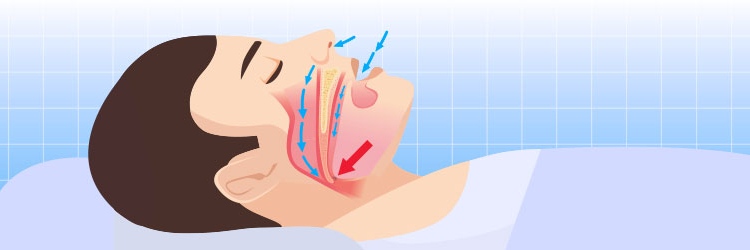A good night’s worth of sleep is often massively underrated in today’s world. Not only does it allow us to replenish and recover physically after a tiring day of work, but also provides the mind with the necessary time to organize itself. Yet, a medical condition like Obstructive Sleep Apnoea (OSA) can be a major disruptor to our precious sleep, more so since over 80% people remain undiagnosed with the condition.
For the uninitiated, OSA occurs when one’s throat muscles intermittently relax to a large degree, thus dangerously blocking the airway during sleep. This leads to the chest and diaphragm muscles to overwork to suck air into the lungs, and hence, cause a disruption in sleep. A common symptom of this condition is snoring.
Once diagnosed and depending upon its severity, OSA can bring about a host of lifestyle changes for the patient which will seem quite challenging. For example, reputed medical device companies have come up with machines such as the CPAP machine which OSA patients must plug in while sleeping. Such changes, often forced by treatment and precaution, can be disruptive but not insolvable. Thus, it is extremely important that a patient and his or her family come together to deal with OSA effectively.
Below, we shall discuss how to deal with OSA effectively and lead a healthy, normal life without the fear of missing out on requisite sleep.
Dealing with the diet and exercise
As is the case with any medical treatment, what you eat when and how goes a long way towards restoring your health. If you are suffering from obstructive sleep apnoea, then there are certain foods which you must avoid consuming before bed since they can possibly disrupt your breathing.
Such foods include red meat which consist of fats and proteins that will not allow your body to rest properly, coffee or dark chocolate which acts as an anti-sleep stimulant, excessively spicy food which might lead to diarrhoea and indigestion during the night, and fibrous food such as celery which might wake you up in the night for an unscheduled bathroom visit. Moreover, as is always recommended, stick to having light meals for dinner, and that too at least three hours before going off to sleep.
Next, exercise can quicken your recovery from sleep apnoea and reduce its severity over time. Since OSA is more often than not observed in obese and overweight patients, especially those with excess neck and throat fat, working out and actively reducing weight can decrease this tissue and clear up the airways for better breathing during sleep!
Dealing with the machine
Perhaps the most difficult part of dealing with OSA is getting accustomed to the CPAP (Continuous Positive Airway Pressure) machine. This is a device with a mask which is positioned on the mouth of the patient when he or she is sleeping. Such a device, as the name suggests, uses an air blower to force continuous air through the nostrils or the mouth at enough pressure to prevent the airway muscles from collapsing or relaxing too much during sleep.
While sleeping with a mask on is a challenging idea, one is recommended to visit sleep centres and clinics to try out the best fitting and the most comfortable mask. You can easily get a discount on your CPAP machine cost if you purchase it from a recommended medical equipment online portal such as Smart Medical Buyer which has an inventory of professional-grade doctor-recommended treatment and other medical devices.
CPAP machine is immensely beneficial in the long run, and by using a few adjustments, one can get used to it and enjoy an immensely good sleep despite having OSA. For example, practice wearing your mask before your bedtime while watching TV or reading a book. This way, your body will get accustomed to the feeling of having a mask on, and you can simply go to sleep by plugging the mask to the blower. Also, increase your mask-on time every night gradually. Start with a couple of hours of sleep with the mask and gradually increase it all the way to the entire night.
Other recommended tips for dealing with OSA
- Try to avoid sleeping on your back as much as possible since such a position relaxes the tongue and throat muscles which might fall backwards and block the airways
- Raise the head off the bed during sleeping by using pillows, etc
- For a good night’s sleep, if you really feel hungry just before bedtime, consume foods containing calcium and tryptophan such as cereals or peanut butter toast.
- Reduce smoking and alcohol consumption as much as possible. Avoid drinking before going to bed
- Try to enrol yourself in an OSA support group to learn from other people’s similar experiences and make your treatment better via invaluable tips and tricks




